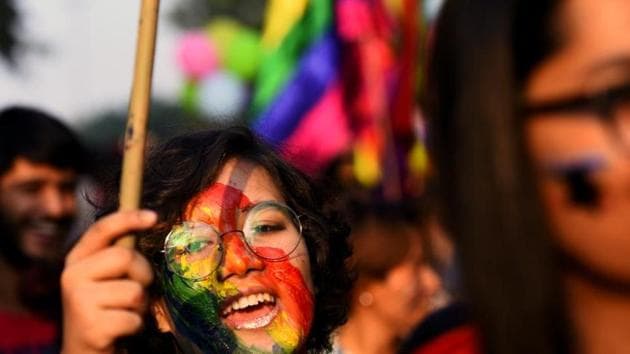Transgender rights bill: Removal of disputed screening clause hailed
The previous clause mandated district screening committees and a clause that criminalized those who entice trans persons to beg.
Transgender rights activists welcomed the Transgender Persons (Protection of Rights) Bill 2019, introduced by minister of social justice and empowerment Thawar Chand Gehlot on Friday, for dropping a provision that mandated district screening committees and a clause that criminalized those who entice trans persons to beg, but reiterated that the bill does not provide reservation for employment and education that, according to them, is vital to provide real social justice for the community.

“I welcome the removal of the enticement to beg (clause) and screening committee section. This is a victory due to the sustained and united pressure from trans communities. But this still leaves us with a bill which lacks provision for reservation, poses anti-Nalsa surgical barriers for binary gender identification, punishes violence against transwomen with much lower prison sentences, and more,” said Karthik Bittu Kondaiah, a transgender rights activist based in New Delhi.
The community has demanded reservation ever since the bill was first tabled in the Lok Sabha in 2015. It was sent to a standing committee on social justice and empowerment, which submitted its report in July 2017. One of the committee’s recommendations was reservation in employment and education.
Grace Banu, a trans and Dalit rights activist, said, “The first thing that needs to change is the environment in which trans persons grow up. That is why horizontal reservation is important, especially in education and employment. This means reservations for transgender persons within existing categories like Scheduled Castes and Scheduled Tribes, among others, is necessary.”
A 2018 version of the bill passed by the Lok Sabha in December mandated screening committees that would comprise district magistrates, psychiatrists or psychologists, and medical officers, among others, and issue transgender identity cards. It further stipulated that a trans person who wished to identify as a man or woman would need to provide proof of having undergone Sex Reassignment Surgery (SRS) to apply for a revised certificate.
Trans persons who were part of country-wide protests in December said the bill was in contravention to the Supreme Court’s judgment of 2014.
The National Legal Services Authority versus Union of India (Nalsa) verdict stated, “Centre and State Governments should seriously address the problems being faced by Hijras/Transgenders... and any insistence for SRS for declaring one’s gender is immoral and illegal.”
SRS refers to a surgical intervention that persons may choose to undergo to transition from the gender they were assigned at birth to the gender they identify with. However, most procedures are costly, and there are no guidelines laid down by the Medical Council of India on conducting such procedures.
The bill introduced on Thursday retains the provision that pertains to revised gender certificates based on proof of SRS.
Dr Sameera Jahagirdar, who is part of the gender care team that conducts surgeries at the Mahatma Gandhi Medical College and Research Institute in Puducherry, and underwent SRS some years ago, said, “The bill is against the Nalsa judgment, and has made an SRS certificate the basis of labelling oneself as ‘man’ or ‘woman’. However, the bill’s proposal to review the medical curriculum is a big relief.”
Several activists who HT spoke to also raised concerns that the punishment specified for a range of offences against trans persons, including sexual violence, enticement to indulge in bonded labour, obstructing right of passage, among others, was uniformly pegged at six months to two years.
In comparison, the Indian Penal Code’s provision for sexual violence against a woman is no less than 10 years and up to life imprisonment.
Get Current Updates on India News, Lok Sabha Election 2024 live, Infosys Q4 Results Live, Elections 2024, Election 2024 Date along with Latest News and Top Headlines from India and around the world.



